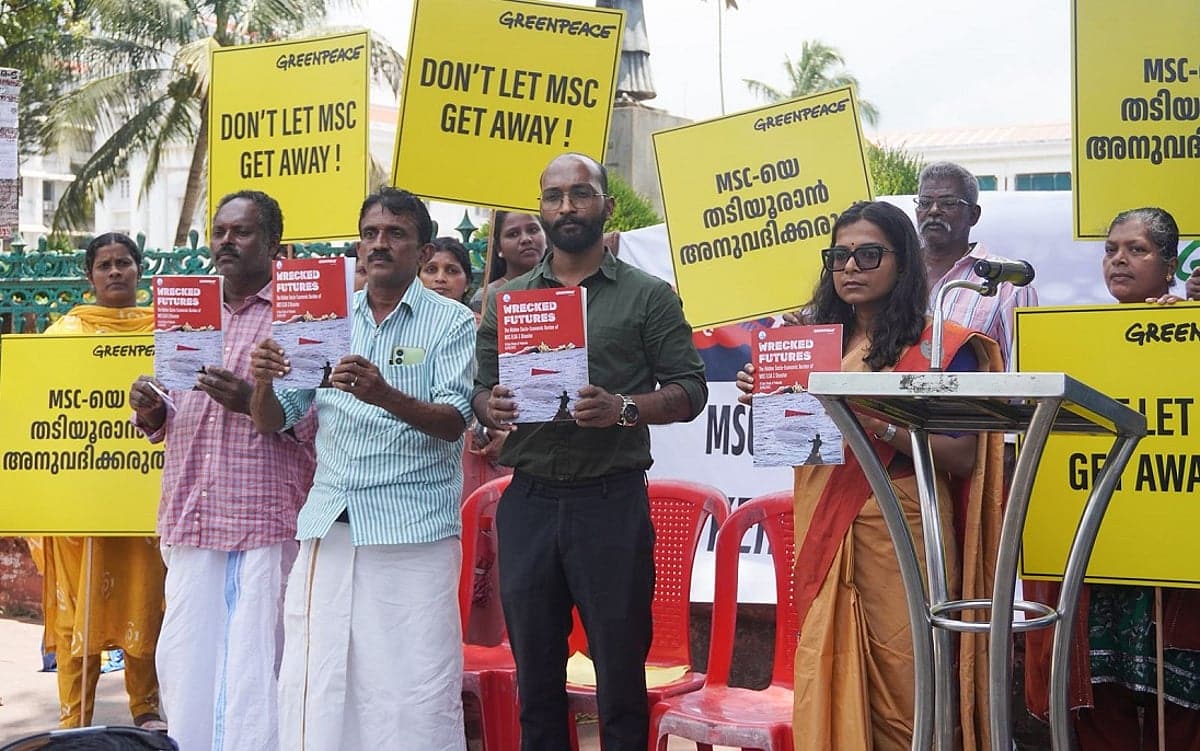MSC Elsa 3 Wreck Devastates Kerala Coast
Coastal Communities Reeling from MSC Elsa 3 Disaster

Four months after the MSC Elsa 3 container ship sank in the Arabian Sea, the impact on coastal communities in Kerala is profound. The once-thriving fishing villages of Pulluvila, Poonthura, and Vizhinjam now face a grim reality as polluted waters threaten their livelihoods. The spill of plastic nurdles and chemical residues has devastated local fisheries, leaving families struggling to survive amid rising debts and dwindling catches.
Shattered Livelihoods
In Pulluvila, a fishing hamlet south of Thiruvananthapuram, the consequences of the MSC Elsa 3 disaster are evident in the empty kitchens and pawned jewelry of local families. Many fishermen report that their boats have remained idle for weeks, and debts are accumulating as they struggle to make ends meet. A recent assessment by local fishing organizations, supported by Greenpeace India, reveals a stark decline in income for nearly every family surveyed. Most have exhausted their savings and are now reliant on loans from local moneylenders or cooperative banks.
The fishing industry has always been precarious, but the wreck has intensified the challenges faced by these communities. Young people, who once looked forward to inheriting their family’s fishing boats, are now considering leaving the trade altogether. Families are trapped in cycles of debt, with their hopes pinned not on the next fishing season but on the uncertain prospect of compensation from ongoing legal battles.
Jackson Pollayil, leader of the Kerala Swathantra Matsya Thozhilali Federation, emphasizes the emotional toll of the disaster. “This is not just about lost wages,” he states. “The wreck has stripped us of dignity. We are humiliated daily by the sight of our boats idle and our nets poisoned.” The struggle for justice has become a daunting task, with many feeling overwhelmed by the legal complexities involved.
A Disaster Declared
The Kerala government swiftly recognized the severity of the situation, declaring it a “state-specific disaster” and filing a claim in the High Court for Rs 9,531 crore in compensation for ecological damage and the collapse of local livelihoods. This unprecedented figure raised hopes among affected communities that the state would support them in their time of need. However, as months passed without significant relief, those hopes began to fade.
Despite promises of assistance, families have received little more than token food packets and cash doles. No independent assessments have been conducted to document the extent of losses, and no legal aid has been provided to help communities navigate the complexities of the legal system. Rethin Antony, a young panchayat member from Poonthura, expresses frustration at the disconnect between the state’s actions and the needs of the communities. “It feels like exclusion by design,” he says. “We are reduced to spectators in our own struggle.”
While the state has struggled to provide adequate support, the Mediterranean Shipping Company (MSC) has acted decisively. In August, MSC announced that its liability for the wreck would be capped at Rs 132 crore, a figure that starkly contrasts with Kerala’s demand. The shipping giant’s legal strategy relies on citing reports from the Kerala State Pollution Control Board, which recorded no significant changes in seawater quality following the incident. This has raised concerns about the effectiveness of India’s environmental regulatory framework and the ability of local communities to seek justice.
As the situation unfolds, the MSC Elsa 3 disaster serves as a critical test of India’s maritime governance and environmental accountability. The outcome will have lasting implications for the rights and dignity of coastal communities, as well as for the future of maritime regulation in the country.
